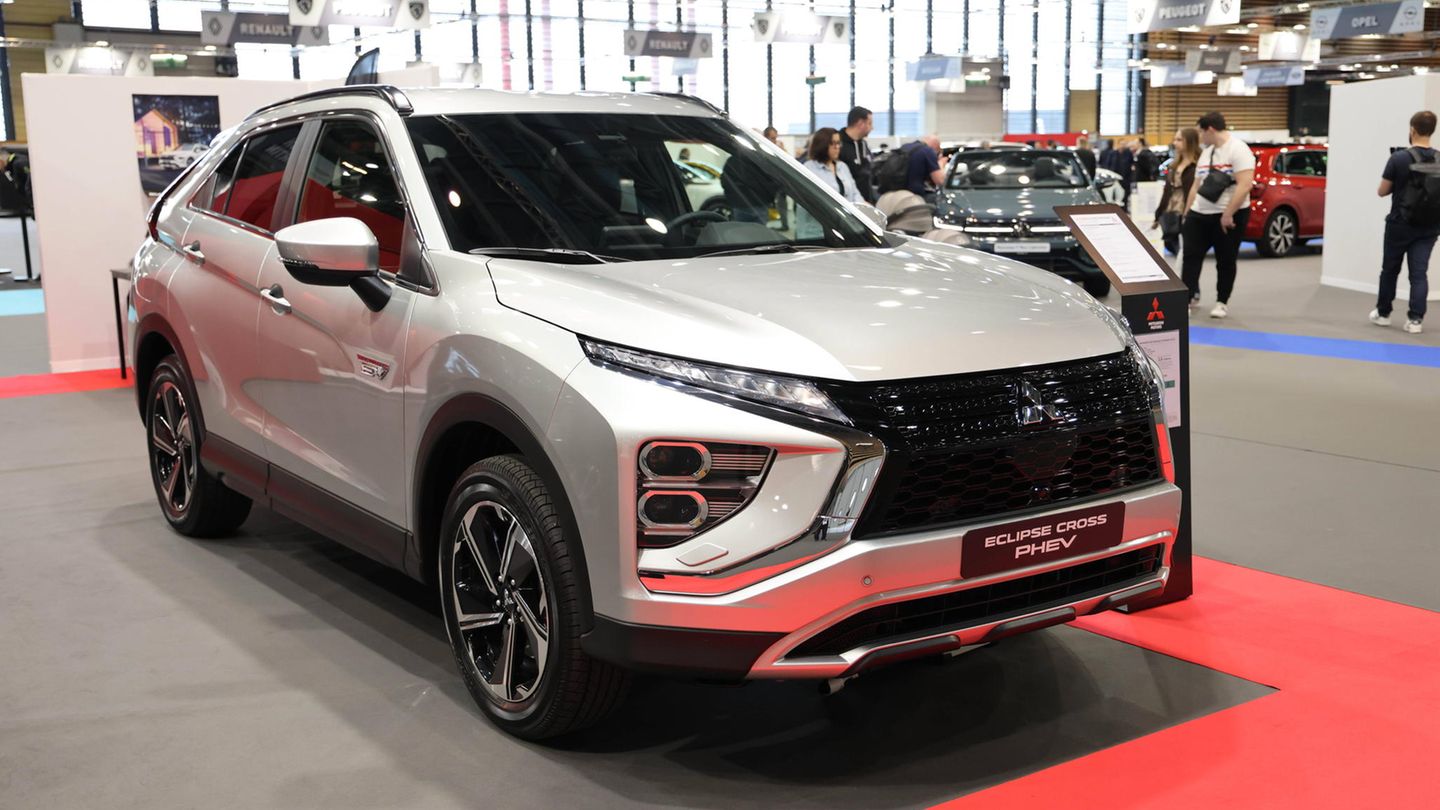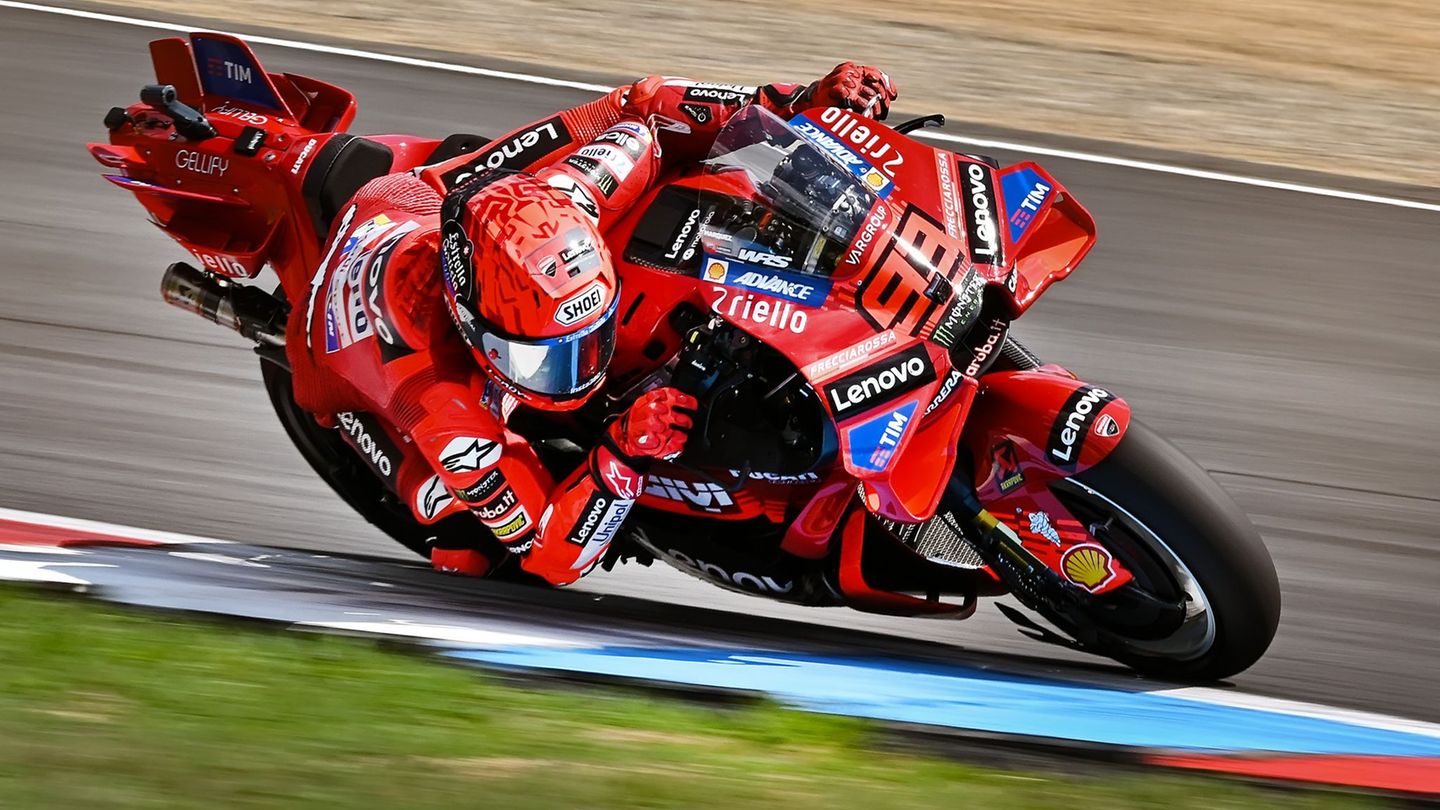Electric cars are considered the cars of the future. Mitsubishi also wants to drive the turnaround in traffic, but relies on plug-in hybrids instead of fully electric cars. Managing director Werner H. Frey from Mitsubishi Germany explained to the starwhy that is.
While many car manufacturers are increasingly replacing their model range with electric cars, Mitsubishi’s range does not include a fully electric car. Instead, with the Space Star, the Japanese car manufacturer has a small car on the market that is only available with a petrol engine. And the pick-up L200 is also only available as a version with a diesel engine. The compact SUV Mitsubishi Eclipse Cross, on the other hand, is only available as a plug-in hybrid model.
The latter probably fits best into the strategy that Mitsubishi is supposed to make fit for the future. The Japanese car manufacturer is aiming for a future with electric vehicles – but not (at least for the time being) with pure electric cars. “We currently consider plug-in hybrid technology to be a technology that will lead people from conventional vehicles to electromobility,” explains Werner H. Frey, Managing Director of Mitsubishi Germany. That’s why the Japanese want to launch two new, partially electric cars next year.
In the first quarter of 2023, the ASX, a Spanish-made B-SUV, is to come onto the market. This is based on Renault models and is to appear as a petrol, hybrid and plug-in hybrid variant (abbreviated: PHEV). The Colt car model from Turkish production is then scheduled to come onto the market in autumn 2023 – also as a petrol and partially electric variant.
Frey reports: “We have already sold over 6,000 plug-in hybrids this year.” For this month, Mitsubishi Germany assumes that 1,000 more vehicles will be sold. In 2020, Mitsubishi said it sold 8,148 PHEVs in Germany, and in 2021 the group increased sales by a good 2,500 units. The share of PHEV vehicles in Mitsubishi registrations in Germany has increased significantly in recent years, from 17 percent in 2020 to 27.4 percent in 2021 and 38 percent so far this year. The managing director of Mitsubishi Germany sums it up: “Things are going very well.”
No delivery problems and increased environmental bonus
The reasons for the growing success could lie in the vehicle availability and the increased environmental bonus. Mitsubishi Germany can promise its customers the premium for the purchase of an electric car “almost blindly”, promises Frey. A “very special” order lasts a maximum of four months, otherwise delivery takes place in a week at the latest. The number of vehicles is large enough and the entitlement to the environmental bonus has not yet been missed due to delivery problems. If Economics Minister Robert Habeck (Grübe) has his way, the bonus for plug-in hybrids should be stopped at the end of the year. This is a maximum of 6750 euros. Mitsubishi added 9,000 euros, i.e. exactly the amount that is paid for fully electric vehicles.
In addition, Mitsubishi advertises a “charging chip” that is intended to enable convenient charging: Customers can use the “charging chip” to charge their car at more than 60,000 public charging points in Germany and over 270,000 in Europe at a uniform rate of 49 cents per kWh -Charging points and charge 59 cents per kWh. Anyone who has a house electricity collective agreement with the Maingau energy supplier will receive a price reduction of 10 cents per kWh.
Mitsubishi sticks to hybrid technology
But the question arises: Aren’t PHEVs just a type of drive for the transition from combustion engines to electric cars? “In 2030, looking back, we will say, ‘yes, that was a period in which we bridged a time’, but we believe in the future of the plug-in hybrid,” says Frey. Although he also assumes that the sales figures for plug-in hybrid models at Mitsubishi will decline somewhat next year, the technology will still be there. Mitsubishi is taking a different approach than Mercedes-Benz, for example; the German carmaker has announced the GLC with hybrid drive for September. Apart from that, the focus at Mercedes-Benz tends not to be on the PHEVs.
Statistically, however, the German drives less than 50 kilometers per day, according to Frey. “Then a plug-in hybrid would be ideal.” Finally, the Mitsubishi Eclipse Cross has an electric range of 61 kilometers (WLTP, converted to NEDC). But the final determination will be: What will happen to the electric vehicles? Frey continues. So much money is being put into special funds that there will probably be no more money left over for further funding. “It will then also go back with the electric vehicles.” Nevertheless, only the battery-powered vehicle is the alternative.
Renault-Nissan-Mitsubishi Alliance plans 35 new electric models
The Renault-Nissan-Mitsubishi Alliance, a cooperation between the three car manufacturers, therefore wants to invest 30 billion euros in electromobility by 2030, as it announced in January. In the next five years, 23 billion euros are to flow into the electric offensive of the group of companies. “There will also be models for us,” announces Frey. A total of 35 models are to be developed on electric platforms, with the Renault-Nissan-Mitsubishi alliance aiming for “the world’s largest range of electric cars” by 2030. Frey did not reveal what kind of vehicle models they will be.
So it will be a few years before Mitsubishi will have electric cars in its range of vehicles. Aren’t the Japanese a bit late there? After all, the competition, such as Opel, Ford and VW or Hyundai and Kia, already have electric cars on the market. And they are also pursuing strategies for the further transition to electromobility. Frey says: “I would also like to have a purely electric car now. But if you look at the market as a whole, then we have both plug-in hybrids and electric cars.” If you want to say goodbye to combustion engines by 2035, the structure and ultimately the infrastructure in the individual markets must keep pace. “It’s not balanced at the moment.” The delayed switch to pure electric cars at Mitsubishi is obviously due to the infrastructure, which the car manufacturer has not yet assessed as sufficient.
Sources: Mitsubishi,
Source: Stern
I am a 24-year-old writer and journalist who has been working in the news industry for the past two years. I write primarily about market news, so if you’re looking for insights into what’s going on in the stock market or economic indicators, you’ve come to the right place. I also dabble in writing articles on lifestyle trends and pop culture news.




